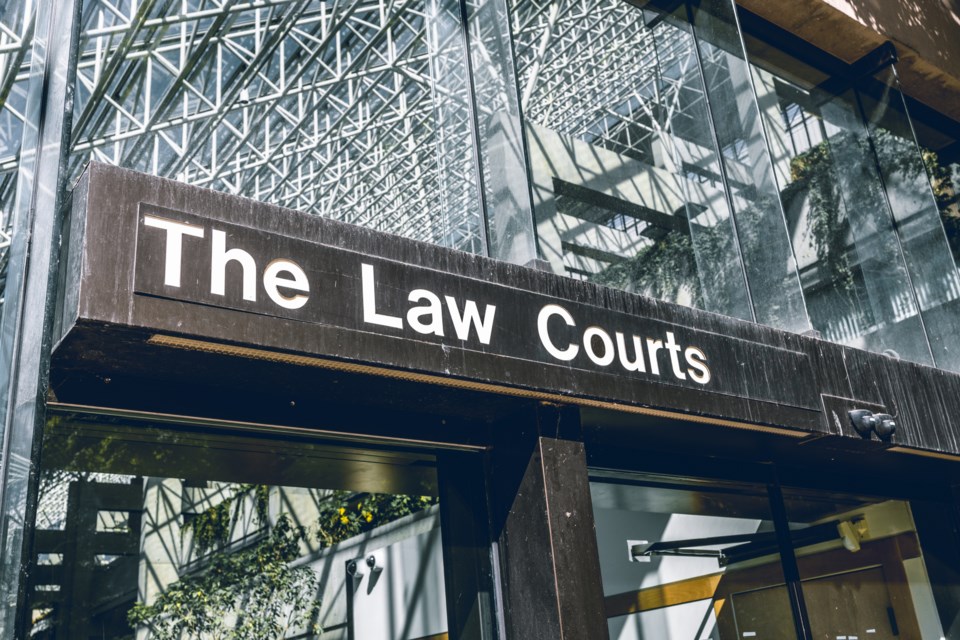B.C.’s Court of Appeal has ruled a provincial court trial delay due to COVID-19 pandemic restrictions was acceptable as the situation was “an exceptional event.”
"I agree with the Crown that the judge’s primary finding was that the delay flowing from its adjournment application was due to a discrete exceptional event, namely the COVID-19 pandemic," Justice Leonard Marchand said in his April 6 decision for the unanimous three-judge panel.
A.B. was scheduled for trial Dec. 7, 2020, in Surrey provincial court on a seven-count information alleging various forms of violence and sexual violence against his former spouse.
However, the Crown applied for an adjournment on the basis that a material witness was unavailable to testify in person due to the COVID-19 pandemic.
The judge granted the adjournment and the trial was eventually rescheduled to commence 281 days later on Sept. 8, 2021, Marchand said.
But, on July 30, 2021, A.B. applied for a stay of proceedings on the basis of an alleged breach of his Charter right to be tried within a reasonable time. That application was dismissed and A.B. was convicted of two counts of assault. On Feb. 4, 2022, he was sentenced to consecutive 12 and six-month periods of probation.
A.B., though, appealed the dismissal of the stay application, asserting the judge was wrong in finding the delay was attributable either to defence conduct or to COVID-19.
Crown maintained the appeal should be dismissed, noting the Crown made reasonable efforts to mitigate delay.
The case
The Crown charged A.B. with one count of assault of the complainant’s cousin, C.D. on Aug. 8, 2019.
About one month later, the Crown amended the information to identify the correct complainant, A.B.’s former spouse. On Nov. 13, 2019, the Crown further amended the information to add six additional counts.
Various adjournments followed, some of which were attributed to defence.
The Crown had sought to call the cousin as a witness. That person, however, was in Quebec and did not wish to travel due to the pandemic. Arrangements were made for the cousin to testify by video conference but A.B.’s lawyer did not want that, preferring evidence to be given in person.
The trial judge found the defence insisting a witness in Quebec attend B.C. court in person during the pandemic was unreasonable, Marchand said.
After further discussions, the Crown submitted the trial could start with the complainant’s evidence. Then, proceedings could be adjourned to obtain C.D.’s testimony later.
A.B.’s counsel opposed that option.
“He emphasized that A.B. was facing serious consequences, including immigration consequences, and was ‘entitled to a speedy trial,’” Marchand said.
The judge allowed the adjournment, noting the cousin was in lockdown in Quebec.
The court noted a provincial court practice direction, suggesting pre-trial conferences as a method of minimizing pandemic trial delays. That happened in March 2021.
But, on May 27, 2021, A.B. filed a notice alleging a breach of his Charter right to a timely trial and sought a stay of proceedings.
That application was dismissed at the same time the conviction was given.


